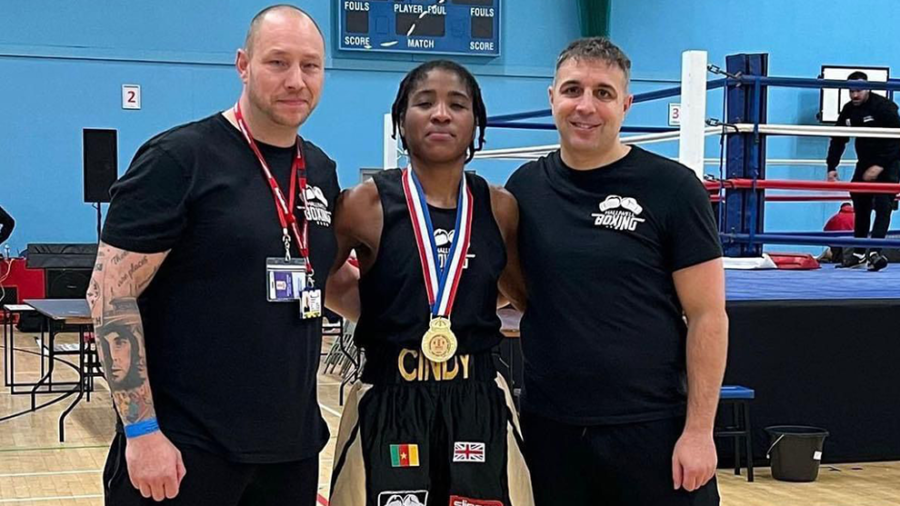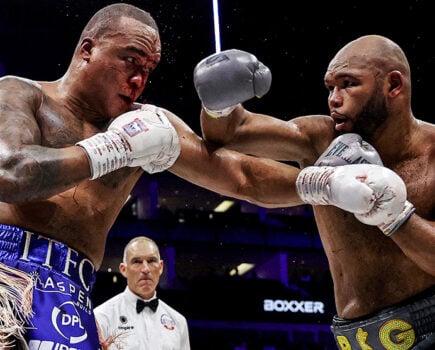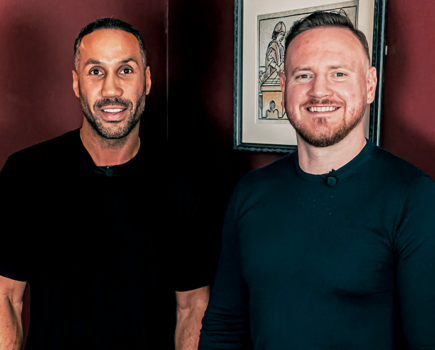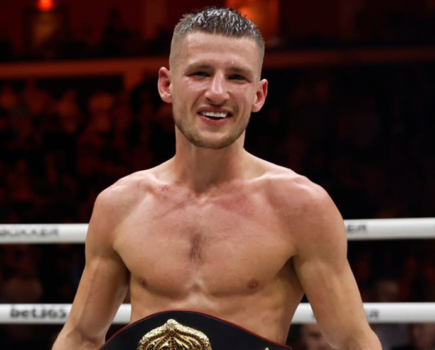By Oscar Pick
At its core, boxing is a good sport, full of genuine people. While its unruly nature, at times, lends itself to confusion and disillusion, there is, undeniably, a beauty beneath the bedlam, binding fighters and coaches together through their shared experiences and incredible stories.
Inside a boxing gym, where egos are left at the door and an unrelenting desire to improve – to finely tune one’s skills – is all that remains, these stories will have a profound impact, not only on those who train at the gym but also on a much wider community.
Cindy Ngamba, a product of the Elite Boxing Gym in Bolton, has overcome remarkable adversities to reach the women’s middleweight quarter-finals at the Paris 2024 Olympics, after defeating the number one seed in her category on Wednesday.
But, with a story that largely transcends her sport, the 26-year-old is fighting for more than just medals. While she has lived in Bolton for the past 15 years, Ngamba is yet to be granted a visa and UK Citizenship.
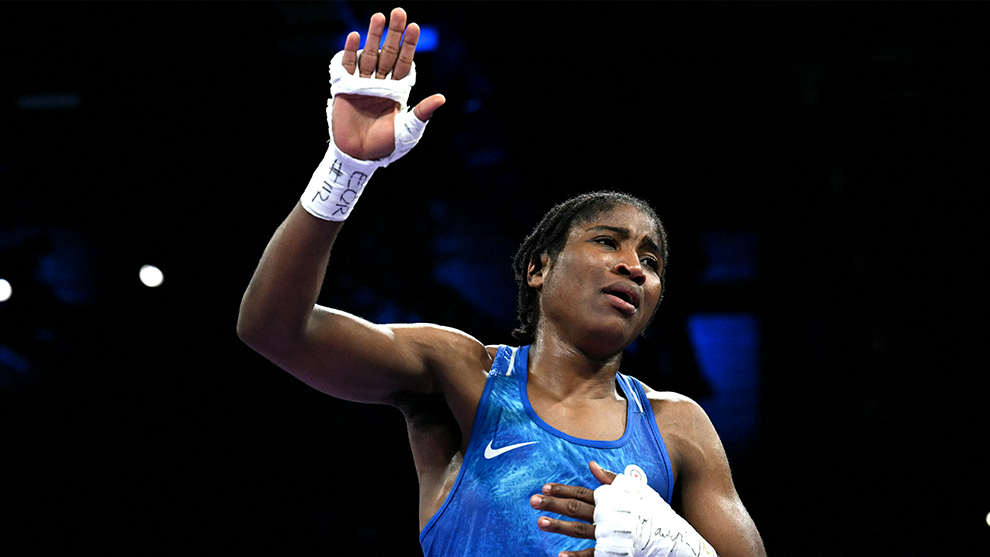
Furthermore, she was arrested and sent to a detention camp in London along with her brother at the age of 20, faced with the possibility of being deported.
With no option to return to her home country, Cameroon, where her sexuality is punishable by up to five years in prison, Ngamba remains determined to continue living in the UK, but knows that her entire world could change at any given moment.
“Cindy is the perfect role model at our gym,” said Alex Matvienko, a former professional fighter and owner of Elite Boxing. “When people are having a bad day, they’ll look at Cindy’s story and think that they’re having a Cinderella time compared to her.
“Cindy’s been through some really traumatic times where, if they don’t make you, they break you – but she’s bulletproof.
“She could get a knock on the door from immigration [authorities], who might decide to send her home. She’s an inspiration.”
Ngamba is representing the Refugee Olympic team while training with the GB squad in France’s capital, where she now has the chance to become her team’s first ever medal winner.
And despite this being her Summer Games debut, the decorated amateur was presented with the prestigious opportunity to be a flagbearer at the Opening Ceremony, leading her 36-strong team along the River Seine.
“Most people would crumble under the pressure, but Cindy thrives in those environments,” Matvienko added.
“When I saw her sparring the best – Savannah [Marshall], Tasha [Jonas], Chantelle [Cameron] – I just knew that she was special, and I’ve seen her confidence shoot up over the years.
“Everybody loves Cindy; she lights up the room. She’s got a lot of weight on her shoulders, but I just feel that she’s built for these moments.”
In many ways, Ngamba’s openness to share her story is something that is widely encouraged at Elite Boxing, as it was during the COVID-19 pandemic when Matvienko established a community hub above his gym, providing a space for people to discuss their mental health problems.
The gym’s support group is called Ricky’s Club, named after an Elite Boxing coach who took his life around ten years ago.
“I knew that I needed to put something in place for anyone who is struggling with their mental health,” said Matvienko. “Some weeks, we can have up to 600 people walk through our doors, so here’s a place where they can socialise, listen and support each other.
“Boxing relates to men’s mental health – you feel like you get knocked down, then you get back up.
“I call it putting the rubbish out – it’s just like emptying your bin – and people tell me that the gym has saved their life.
“Ricky’s had a massive effect on so many lives. I’ve got all these men who come in, and they say how they’re feeling on a scale of one to ten. Some guys will come in and say: ‘I’m a one today; I feel suicidal.’ And then, 12 months later, they’ll say: ‘I feel 9 or 10.’ There’s no better feeling.”
As a multi-faceted gym, with a strong emphasis on changing lives in the local community, Elite Boxing relies on the support of around 30 volunteers, who selflessly give up their time in order to make a real difference.
However, like any boxing club owner, Matvienko has found himself in a constant battle to secure funding; which is why, more recently, Elite Boxing has claimed charity status, a decision that many gym owners up and down the country have made.
“Being a limited company was an Achilles heel, really, because it was holding me back from securing funding,” Matvienko said.
“Now, the gym is a CIC [Charitable Incorporated Company], which has opened a lot more doors.
“But still, when you’re getting an ex-boxer like myself writing bids [to request more funding], there’s always going to be barriers. And my staff, while they can teach you how to throw a jab, they’re not the best bid writers either.”
It is a difficult reality to accept, that boxing, despite having a positive impact on the younger generation in particular, has always been one of the more underfunded sports in this country.
And yet, there are fighters like Ngamba who, against the odds, continue to shine at the highest level, with her story – one that may well be defined by Olympic glory – showing, once again, why boxing is a sport like none other.

